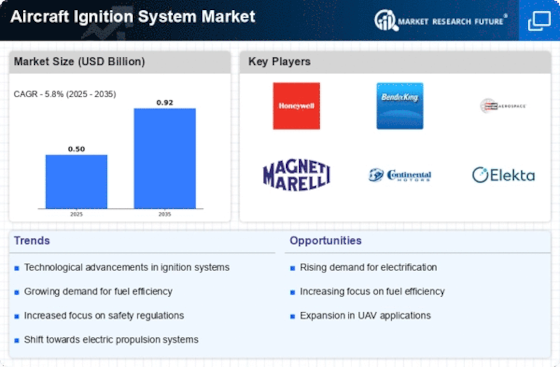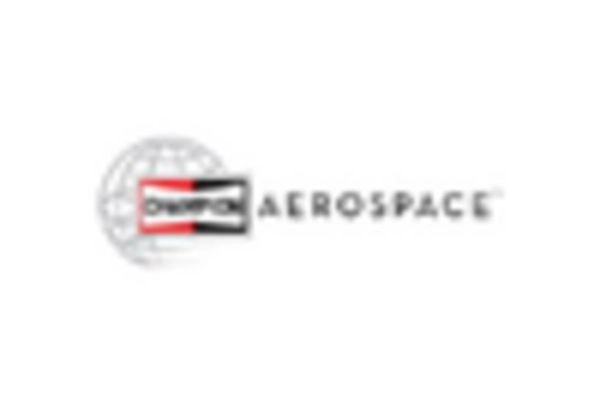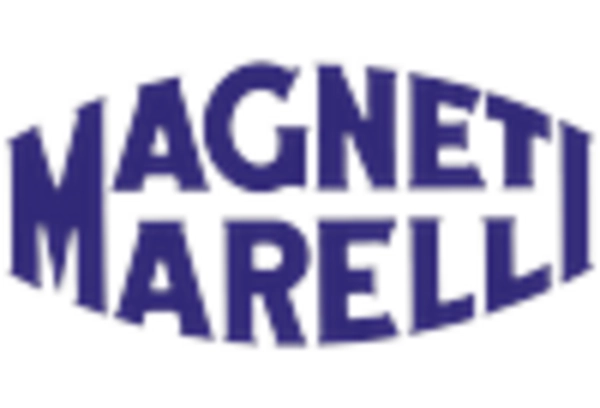Market Analysis
In-depth Analysis of Aircraft Ignition System Market Industry Landscape
The aircraft ignition system market operates within a dynamic and evolving landscape, influenced by a combination of technological advancements, regulatory requirements, market competition, and industry trends. Aircraft ignition systems play a critical role in the operation of piston-powered aircraft, providing the necessary spark to ignite the fuel-air mixture in the engine cylinders and initiate combustion. As aircraft engines become more advanced and efficient, the demand for reliable and high-performance ignition systems continues to grow.
Technological advancements drive innovation and competitiveness in the aircraft ignition system market. Manufacturers are constantly developing new ignition system designs and components to improve reliability, durability, and efficiency while meeting stringent aviation safety standards. Advancements in materials science, electronics, and engine design enable the development of lightweight, compact, and energy-efficient ignition systems that optimize engine performance and reduce fuel consumption. Moreover, integration of digital technologies such as electronic ignition systems and engine management systems enhances precision, control, and reliability in aircraft ignition systems, leading to increased adoption among aircraft operators and manufacturers.
Regulatory requirements and certification standards play a crucial role in shaping the dynamics of the aircraft ignition system market. Aviation regulatory bodies such as the Federal Aviation Administration (FAA) and the European Aviation Safety Agency (EASA) establish airworthiness standards and certification requirements for aircraft components, including ignition systems, to ensure compliance with safety, reliability, and performance criteria. Manufacturers must undergo rigorous testing, validation, and certification processes to demonstrate the safety and effectiveness of their ignition systems before they can be installed on certified aircraft. Compliance with regulatory requirements is essential for gaining market acceptance and securing contracts with aircraft manufacturers and operators.
Market competition drives innovation, pricing, and market positioning in the aircraft ignition system market. Manufacturers compete for market share by offering a wide range of ignition system products and solutions tailored to different aircraft types, engine configurations, and performance requirements. Competitive pricing, product reliability, customer support, and aftermarket services are key factors influencing purchasing decisions among aircraft operators and manufacturers. Moreover, strategic partnerships, mergers, and acquisitions enable companies to expand their product portfolios, access new markets, and strengthen their competitive position in the global aviation industry.
Industry trends such as aircraft modernization, electrification, and sustainability influence the demand for aircraft ignition systems. As aircraft manufacturers and operators seek to improve fuel efficiency, reduce emissions, and comply with environmental regulations, there is a growing interest in electric propulsion technologies and hybrid-electric power systems for aircraft propulsion. Electric ignition systems offer benefits such as lower weight, reduced maintenance, and enhanced reliability compared to traditional magneto-based ignition systems, making them attractive options for future aircraft designs. Moreover, advancements in alternative fuels such as biofuels and hydrogen drive innovation in aircraft propulsion systems and create opportunities for electric ignition system manufacturers to contribute to the development of sustainable aviation solutions.


















Leave a Comment